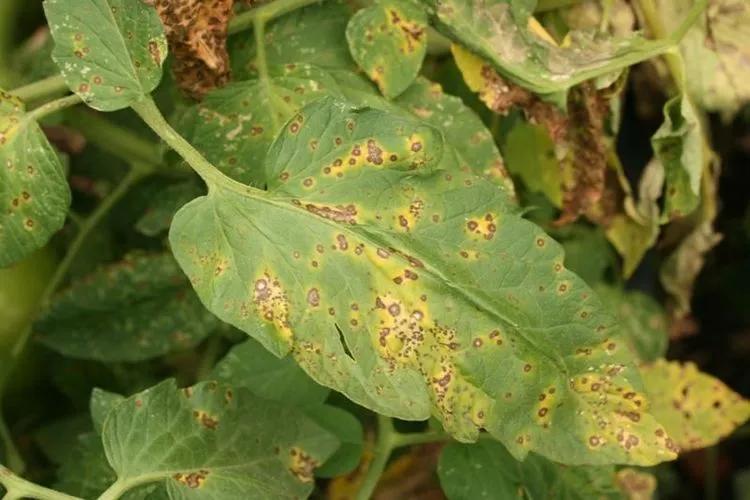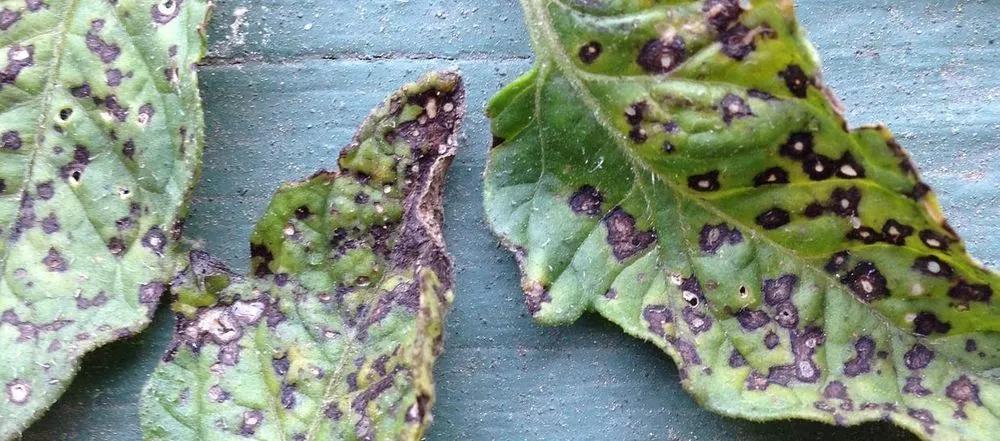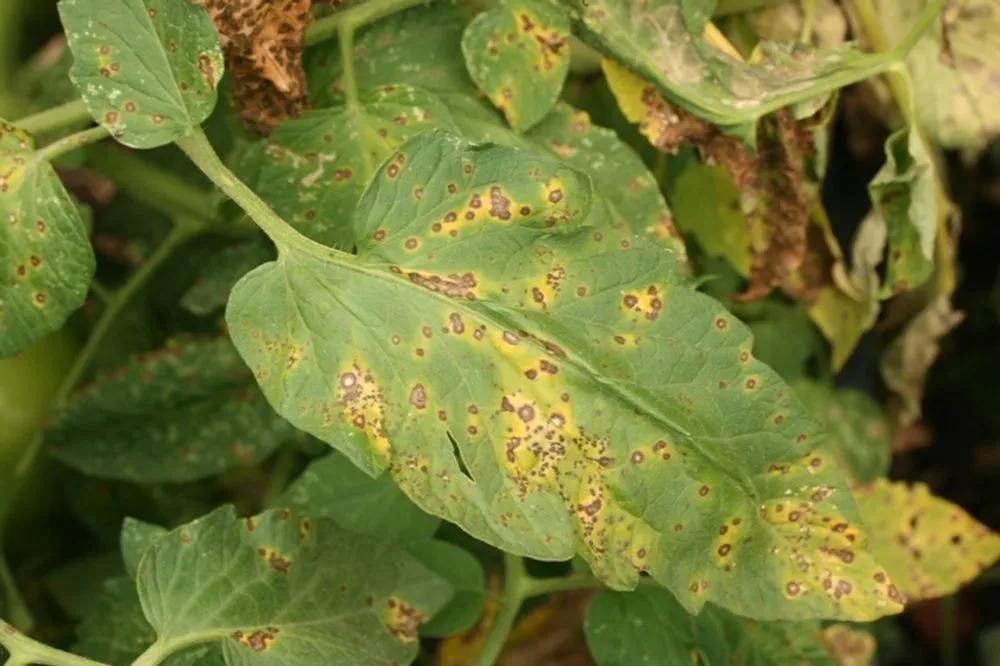Septoriosis is one of the most common fungal diseases affecting many cultivated and wild plants, including root crops and ornamental crops. It is primarily characterized by the appearance of light spots with a dark border on the plant's leaves. Septoriosis progresses in high humidity conditions at a temperature of 68-77 ºF (20-25 ºC). The infection leads to the fall of most leaves in plants, disturbing the natural processes and making the plant weak and unable to develop.
Septoria Leaf Spot Treatment



Signs of damage
- light or grayish spots on the leaves with a darker border, mostly yellow;
- growth of the spots in size, their merging, and occupying most of the surface of the leaf;
- black dots of pycnidia of the fungus appear in their center;
- fall of the dried leaves;
- bending of the stems with a change in color to brown;
- death of bark on trees dies.
How to prevent
It is best to take the necessary preventive measures to avoid septoriosis. They include but are not limited to collection and disposal of fallen leaves and fruits, pruning of dead shoots with parts of healthy tissue, and fungicide solutions treatment (such as copper and iron sulfate) in much lower concentrations than the therapeutic ones. Plants with strong immunity can fight any disease if they have a suitable growing environment and appropriate care. As is often the case, this disease affects the weakest plants, those that lack proper care.
Heal
The smartest method of fighting septoria pathogens in plants is by using fungicides. Still, many planters oppose plant treatments involving chemical substances and rely on less toxic natural remedies that prevent the negative consequences of such treatment, like the chemical burns of leaves. However, if the damage is substantial, there might not be any other effective approach than industrial fungicides.
Go Premium to continue reading
Also you’ll get unlimited access to disease identification and all the other beneficial features
More problems
